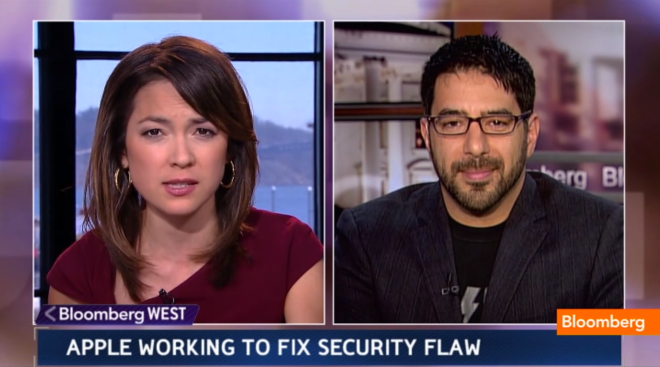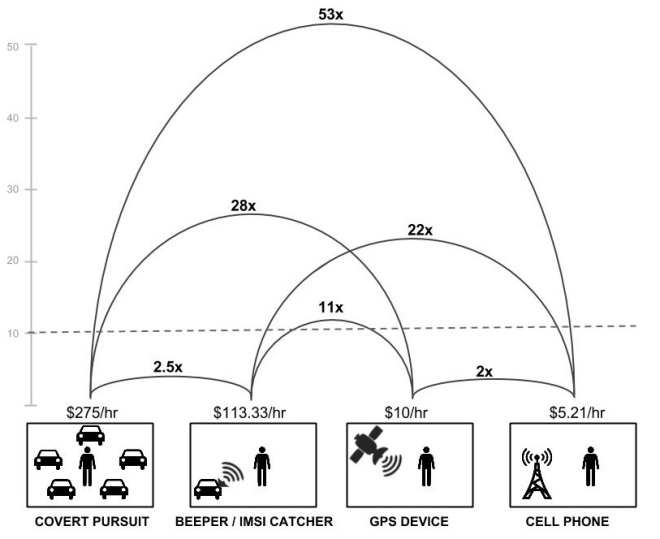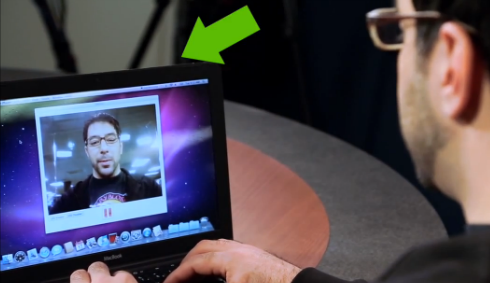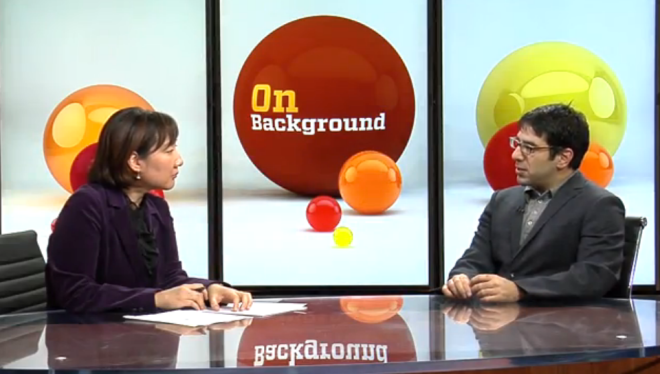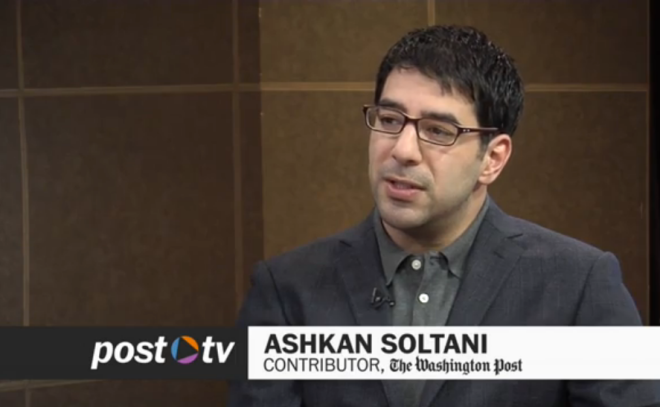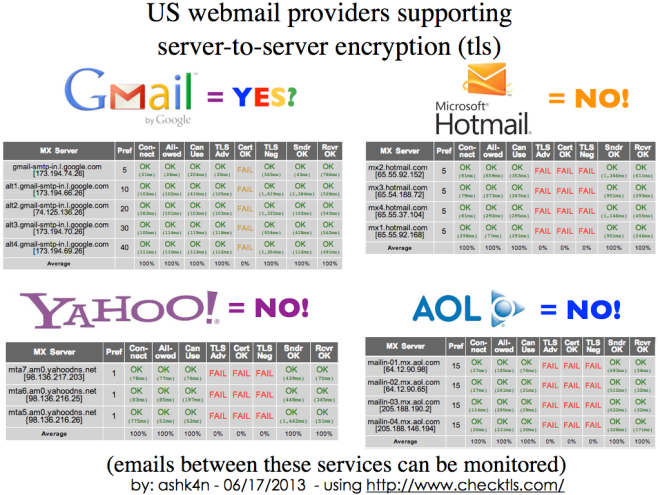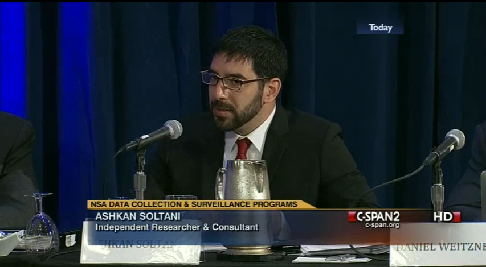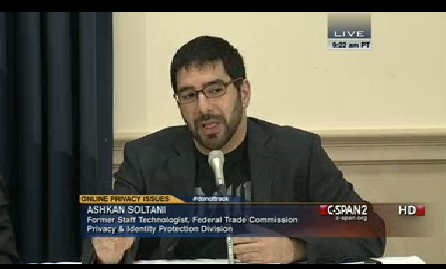I’m currently serving as the Chief Technologist of the Federal Trade Commission.
For the past few years, my work has focused primarily on consumer privacy, security, and surveillance. I had the pleasure of working Julia Angwin and the team at the Wall Street Journal on the multi-year What They Know series. I then teamed up with David Campbell and Aldo Cortesti to create a pretty fantastic mobile privacy company, MobileScope. Jer Thorp and the team at OCR invited me to collaborate on the development of the Floodwatch Chrome browser extension, which was released in mid-October. And most recently, I worked with the Washington Post’s national security and technology reporters, spearheaded by Barton Gellman, on an array of ground-breaking stories about surveillance and the NSA.
With this announcement, I am moving back to the regulatory side of these issues, extending the work that was started by my predecessors at the FTC: Dr. Latanya Sweeney, Dr. Steven Bellovin, and Dr. Edward Felten.
I’m extremely excited to return to the FTC in a new role as Chief Technologist and help move forward the agency’s work in protecting consumers’ privacy and security. I hope to leverage my experience and expertise in emerging technologies to help advance Chairwoman Ramirez’s goal of safeguarding consumers’ privacy, while ensuring they can reap the benefits of new innovations. [Read more…]


 The Washington Post was just awarded a Pulitzer for, “its revelation of widespread secret surveillance by the National Security Agency, marked by authoritative and insightful reports that helped the public understand how the disclosures fit into the larger framework of national security.”
The Washington Post was just awarded a Pulitzer for, “its revelation of widespread secret surveillance by the National Security Agency, marked by authoritative and insightful reports that helped the public understand how the disclosures fit into the larger framework of national security.”
